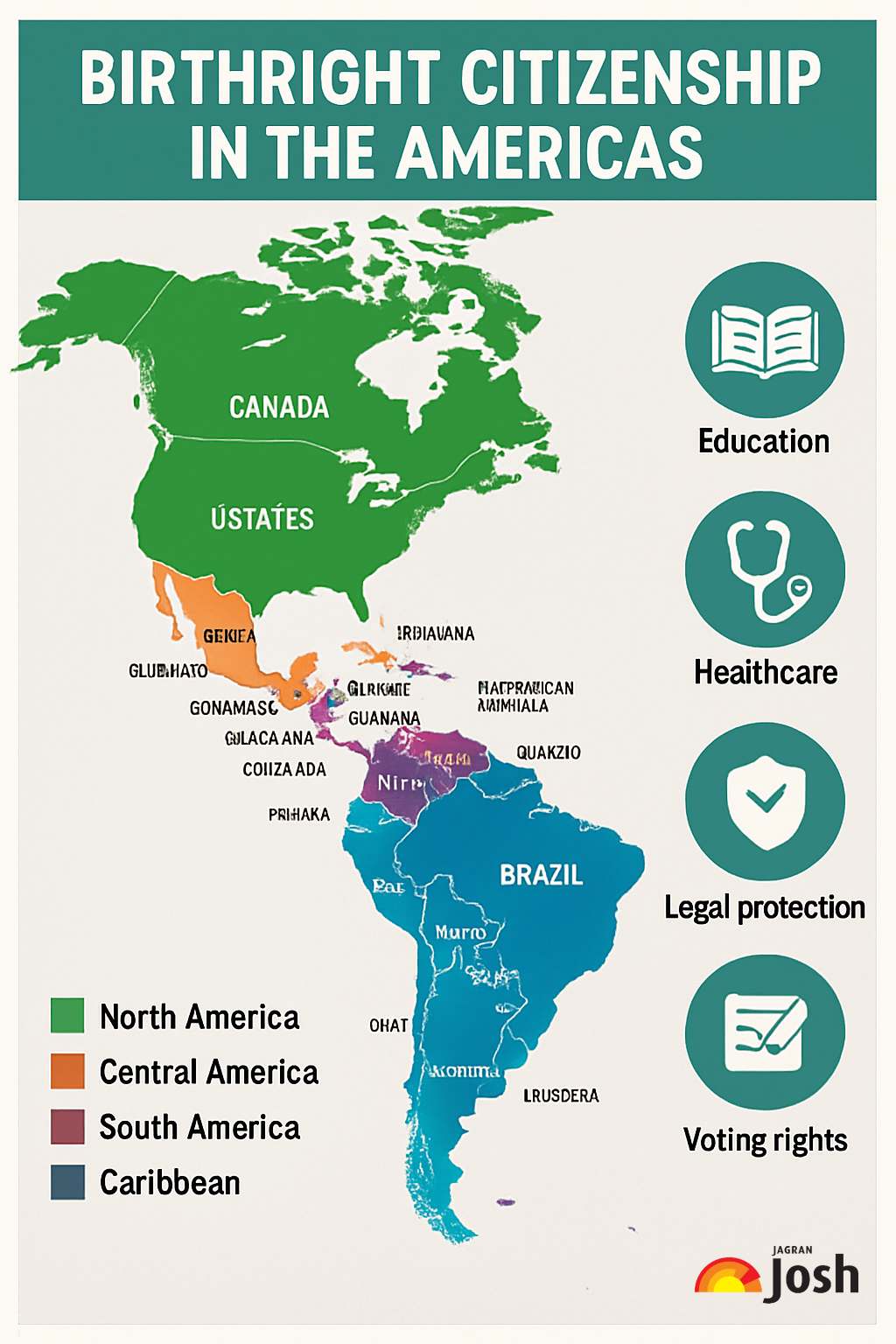Birthright citizenship is a principle of law that grants a country's nationality to a person automatically at birth, without consideration of their parents' nationality or immigration status.
The most prevalent form is referred to as "jus soli" (Latin for "right of the soil"). It differs from "jus sanguinis," where citizenship is determined by parents' nationality.
Advantages of Birthright Citizenship
Birthright citizenship has numerous benefits:
-
Equality and Inclusion: All the children born in the nation are treated equally and can easily become members of society.
-
Clear identity: It prevents statelessness and allows citizens to easily establish proof of citizenship through a birth certificate.
-
Access to Public Services: Citizens receive public education, health care, and other essential rights from birth.
-
Social Stability: It facilitates the integration of diverse societies and makes the social fabric of the nation stronger.
List of Countries With Birthright Citizenship
Below is a list of countries with unrestricted birthright citizenship (jus soli) as of 2025.
| Country | Region |
| United States | Americas |
| Canada | Americas |
| Mexico | Americas |
| Brazil | Americas |
| Argentina | Americas |
| Jamaica | Americas |
| Barbados | Americas |
| Uruguay | Americas |
| Venezuela | Americas |
| Chile | Americas |
| Antigua and Barbuda | Caribbean |
| Belize | Central America |
| Grenada | Caribbean |
| Dominica | Caribbean |
| El Salvador | Central America |
| Guatemala | Central America |
| Honduras | Central America |
| Nicaragua | Central America |
| Panama | Central America |
| Paraguay | South America |
Major Countries With Birthright Citizenship

United States
The United States is perhaps the most well-known example of unrestricted birthright citizenship. Anyone born within the country (with the exception of foreign diplomats' children) becomes a U.S. citizen. This is guaranteed by the 14th Amendment and has been an integral component of American identity and law since more than 150 years ago.
Canada
Canada also has the same, giving all individuals born in Canada citizenship, whatever the status of their parents. The policy enhances integration and gives equal chances to all children born in Canada.
Mexico
Mexico also assures unlimited birthright citizenship. All children born in Mexico are Mexican citizens, with only exceptions to diplomatic families.
Brazil and Argentina
Both Brazil and Argentina grant citizenship on the basis of place of birth only, with little or no exceptions. Such policies serve to construct open and inclusive communities regardless of parents' legal status.
Caribbean and Central American Nations
A number of Caribbean nations, including Jamaica, Barbados, Antigua and Barbuda, and Grenada, extend the privilege of free birthright citizenship. The policy reflects the region's commitment to fostering social equality and ensuring access to fundamental rights for all individuals.
Uruguay, Venezuela, and Chile
In South America, Uruguay, Venezuela, and Chile extend citizenship to all individuals born within their borders, thereby reinforcing a tradition of inclusivity and legal assurance.
Birthright citizenship (jus soli) remains a fundamental principle underpinning national belonging, equality, and social cohesion in more than 30 countries, especially across the Americas. While many industrialized nations in Europe and Asia have placed restrictions on birthright citizenship, those that maintain this practice continue to foster multicultural societies, ensuring that all children born within their borders are embraced and afforded protection from the moment of their birth.
ALSO READ| The 10 Longest Rivers in North America
ALSO READ| List of US States by Area
Comments
All Comments (0)
Join the conversation